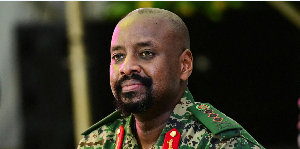By Kwame Okoampa-Ahoofe, Jr., Ph.D.
Garden City, New York
Jan. 10, 2016
E-mail: okoampaahoofe@optimum.net
I am a stereotypically proud Ghanaian-born writer who, like most of my age-mates and classmates, believe that when it comes to the issue of political culture, our beloved country ought to be far and away at the head of the pack, both within the West African sub-region and the African continent at large. That is our patriotic pride and a collective self-image that may not necessarily reflect the truth, or reality, on the ground. And yet this may clearly explain the fact that quite a slew of us were not very enthusiastic to hear Nigeria’s Prof. Attahiru Jega challenge Ghana’s Electoral Commission (EC) to qualitatively outperform his country’s Independent Electoral Commission’s 2015 performance at the polls during Ghana’s 2016 general Election (See “Fair Polls: Jega Challenges Ghana to Beat Nigeria” Classfmonline.com / Ghanaweb.com 12/14/15).
For those of our readers who may not have heard the name of the man, Prof. Attahiru Jega is the most recently retired Electoral Commissioner of “Africa’s most populous democracy.” That was exactly how the Classfmonline.com reporter whose article I used as a point of reference for this piece reported it. I am struggling hard to get used to the concept of Nigeria as “Africa’s most populous democracy.” As well, I am equally straining to get used to Nigeria as a constitutional democracy. You see, most Nigerians that I have either befriended or come across and spoken to do not seriously believe that Nigeria is a functionally credible constitutional democracy.
They almost, every one of them, by and large, are of the firm opinion that Nigeria is a country that never really learned anything either constructive or meaningful from the “Biafran War,” if they are speaking as Ibo first and then Nigerian second; or the “Nigerian Civil War” or simply the “Civil War,” if they are speaking as other than Ibo.
What fascinates me about the lecture presented by Prof. Attahiru Jega in commemoration of the Silver Anniversary – I suppose that is what 25 years of institutional existence means – of the quite respectable Institute of Economic Affairs (IEA), the Accra-based think-tank, is what the retired Chairman of Nigeria’s Independent Electoral Commission did not specifically say about the general conduct of Ghana’s 2012 general election but strongly implied. And it was the fact that Ghana’s Election 2012 was insufferably flawed and one that did not, or had not, represented the African continent to the rest of the international community as a soundly functional democracy.
In other words, as the cliché goes, Ghana’s 2012 general election was not any remarkable event to write home about. Prof. Attahiru Jega was more than sophisticated enough to “charitably” thumb his nose at the one country in the West African sub-region with which Nigeria has always had a running, albeit a quite healthy, rivalry. Which was why he deftly and poignantly added the following statement to rollicking effect: “I think that if you have been beating us in soccer, you must now beat us in the conduct of free, fair and credible elections.”
Simply put, in the biting words of Prof. Attahiru Jega, Ghana’s Election 2012 was anything but “free,” “fair” and “credible.” And this may well explain why none of the key operatives of the ruling National Democratic Congress (NDC) were reported to have put in a conspicuous appearance at the IEA’s Silver-Anniversary Celebration. In the recent past, including the lead-up to the 2012 presidential election, the key operatives of the NDC have, by turns, virulently impugned the fairness and credibility of the debates hosted by the IEA because these events have been vehemently faulted for not encouraging the NDC presidential candidates to give off their best. Needless to say, the truth of such running plaints has neither been clear nor credible to me.
And, of course, even as I write, I am vividly recalling the inexcusably savage annoyance which the New Patriotic Party (NPP) candidate at the 2012 IEA-sponsored Presidential-Election Debates, Nana Addo Dankwa Akufo-Addo, allowed himself to be passed through by the NDC surrogate who also doubled as the Presidential Candidate of the so-called People’s National Convention (PNC), Mr. Hassan Ayariga. This year, though, his party’s delegates refreshingly decided that they had had more than enough of this apocalyptically inarticulate mess of a presidential candidate. They decided to literally throw him under the bus.
Prof. Attahiru Jega also deftly and diplomatically signaled the fact that the best years of Ghana’s electoral leadership in the West African sub-region may well be behind both his host country and the times. And so he took the prime opportunity to express his gratitude to Dr. Kwadwo Afari-Gyan, the former University of Ghana’s political scientist and recently retired Chairman of Ghana’s Electoral Commission, for having been such a great sport, “regardless of what may have happened in the last elections.”
I bet no Ghanaian relished this poignant Attahiru Jega Jab more than Nana Addo Dankwa Akufo-Addo, the man that Dr. Afari-Gyan had erroneously presumed to have effectively retired from active Ghanaian politics.
*Visit my blog at: kwameokoampaahoofe.wordpress.com Ghanaffairs
Opinions of Thursday, 21 January 2016
Columnist: Okoampa-Ahoofe, Kwame














